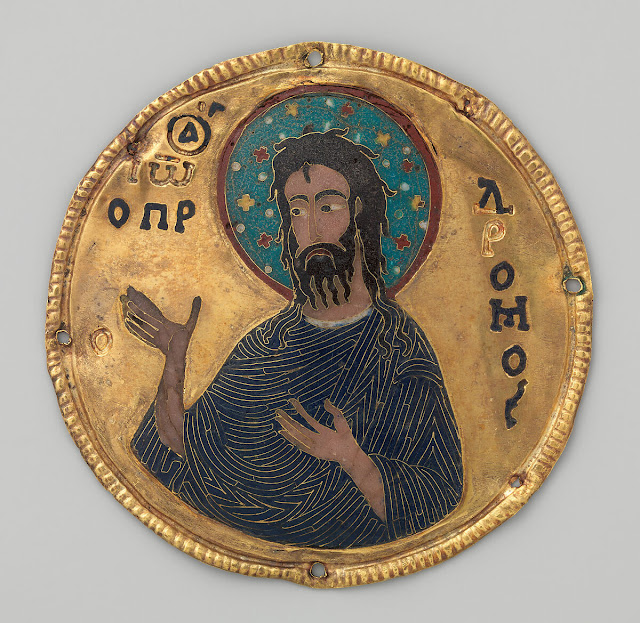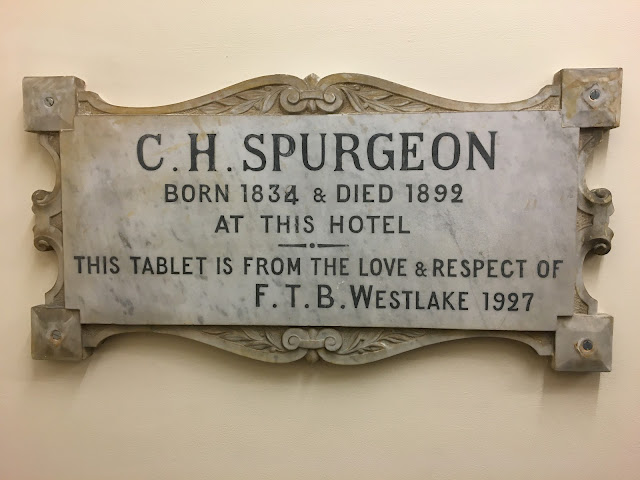Notes:
In this episode, we are looking at Book 2, chapter 12 where Augustine addresses issues related to the veracity of the Gospel records in reporting the recorded speech of John the Baptist.
2.12: Concerning the words ascribed to John by all four of
the evangelists respectively.
Augustine here investigates how the reader might understand
statements attributed to John the Baptist in each Gospel respectively, while
harmonizing such statements overall as they appear throughout all four Gospels.
How does one, in particular, understand statements attributed to John that seem
to differ from one account to another? This discussion might be described as
addressing the question of whether the evangelists reported the ipsissima
verba (the very words), in this case of John the Baptist, or the ipsissima
vox (the very voice, but not the exact words).
Augustine begins with a discussion of how one differentiates
and recognizes direct quotation of speech. How does one distinguish between
something Matthew says and something John says when the text does not use some
clear grammatical indicator of direct quotations. He gives as an example the
statement in Matthew 3:1-3, which begins, “1 In those days came John the
Baptist, preaching in the wilderness of Judea, 2 And saying, Repent ye: for the kingdom of
heaven is at hand.” The question is whether or not the next statement in v. 3 [
“For this is he that was spoken of by the prophet Esaias, saying, The voice of
one crying in the wilderness, Prepare ye the way of the Lord, make his paths
straight.”] was also spoken by John or information added by Matthew. In other
words, where does the quotation from John end? At v. 2 or at v. 3? Augustine
notes that Matthew and John sometimes speak of themselves in the third person
(citing Matthew 9:9 and John 21:24), so v. 3 might legitimately have been
spoken by John the Baptist. If so, it harmonizes with John’s statement in John
1:23, “I am the voice of one crying in the wilderness.”
Such questions, according to Augustine, should not “be deemed
worth while in creating any difficulties” for the reader. He adds, “For
although one writer may retain a certain order in the words, and another
present a different one, there is really no contradiction in that.” He further
affirms that word of God “abides eternal and unchangeable above all that is
created.”
Another challenge comes with respect to the question as to whether
the reported speech of persons like John are given “with the most literal
accuracy.” Augustine suggests that the Christian reader does not have liberty
to suppose that an evangelist has stated anything that is false either in the
words or facts that he reports.
He offers an example Matthew’s record that John the Baptist
said of Christ “whose shoes I am not worthy to bear” (Matthew 3:11) and Mark’s
statement, “whose shoes I am not worthy to stoop down and unloose” (Mark 1:7;
cf. Luke 3:16). Augustine suggests that such apparent difficulties can be
harmonized if one considers that perhaps each version gets the fact straight
since “John did give utterance to both these sentences either on two different
occasions or in one and the same connection.” Another possibility is that “one
of the evangelists may have reproduced the one portion of the saying, and the
rest of them the other.” In the end the most important matter is not the variety
of words used by each evangelist but the truth of the facts.
Conclusion:
According to
Augustine, when it comes to addressing “the concord of the evangelists” one
finds “there is not divergence [to be supposed] from the truth.” Thus, he contends
that any apparent discrepancies or contradictions can be reasonably explained.
For Augustine variety of expression does not mean contradiction.
JTR








